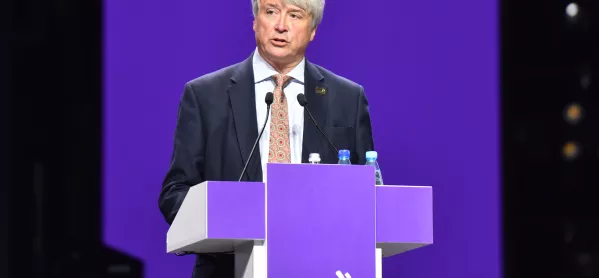Skills have become invisible in the UK – and the country would be better prepared for Brexit if something had been done about that 20 years ago, according to Simon Bartley, president of WorldSkills.
Speaking from Kazan, Russia, where the 45th WorldSkills competition is currently taking place, Bartley said that in order for the UK to have a successful economy post-Brexit, a blended workforce was required.
Background: How WorldSkills transformed education in Russia
News: WorldSkills Kazan: Day two in pictures
Opinion: Why it's time to get behind Team UK
“Since the end of the Second World War, there’s been more and more of a push for academic education. We've almost ignored the fact that we need people to work in the areas of skills – it can’t just be about workforce who have all got various degrees," he said.
“We do have a thirst for it, we have turned a bit of a corner and we are on the way towards a parity of importance in vocational skills. In the UK, we’re only 10 per cent of the way, and there is a journey to go on."
What WorldSkills can do for FE
In that journey, new education minister Gavin Williamson could be key. In Boris Johnson's reshuffle, he was given direct responsibility for the FE remit – a remit that previously had its own minister.
It’s was move that has divided the sector – with some believing it confirms the prime ministers support for FE, while others are concerned it will mean that FE cannot get the attention it deserves.
Bartley is undecided. “It’s a good move, if he delivers on it. I’ve also seen the list of ministers who have a responsibility of skills since I’ve been in the sector – and it’s longer than any other list of ministers in any other portfolio area or in any other country. We’ve had lots of promises, we’ve had good skills ministers, we’ve had bad ones," he said.
“If Gavin WIlliamson, with the encouragement of the [prime minister], who has said some every positive things, can be allowed to deliver, particularly by the Treasury with the resources that are needed, then it’s a good thing. If he helps support failure and does nothing about it, then that’s not going to be good."
It’s the first time since Bartley has been involved in WorldSkills – both as president and as CEO of UK skills – that no UK minister has attended the competition, he added.
Presidential legacy
This year’s competition is Bartley’s last as president. He said there are elements of his legacy that he is really proud of. One is facilitating Russia’s rise to success – their story is well-documented: a late-comer to the competition in 2010, they left with no medals and determined to do something about it. Nine years later, not only are they hosts, they’ve embedded the WorldSkills standards of excellence into their education system.
Another is the WorldSkills champions trust, which ensures that former competitors go out and act as ambassadors for skills. “It’s important to empower young people to take their own worlds into their hands. People like me can act as facilitators, but it’s their future. They’re the ones who need to define it and make it,” he said.
In his eight years in office, Bartley said that WorldSkills has moved away from being just a competition – it’s now a movement. Of course, the competitions are still important – but sitting alongside it are five other focus areas: education, careers, international development, corporation development, and promotional skills and research. “We’re more than a competition, Kazan has been the biggest ever competition, but also the biggest ever WorldSkills conference. In the ministerial conference, frankly, the room wasn’t big enough to squeeze them all in,” he said.
So what does he plan to do next? He has no idea. “At some stage, if they want me to do something, I’ll do it. But I think I’ll just see how I feel after I wake up after doing all of this.”




